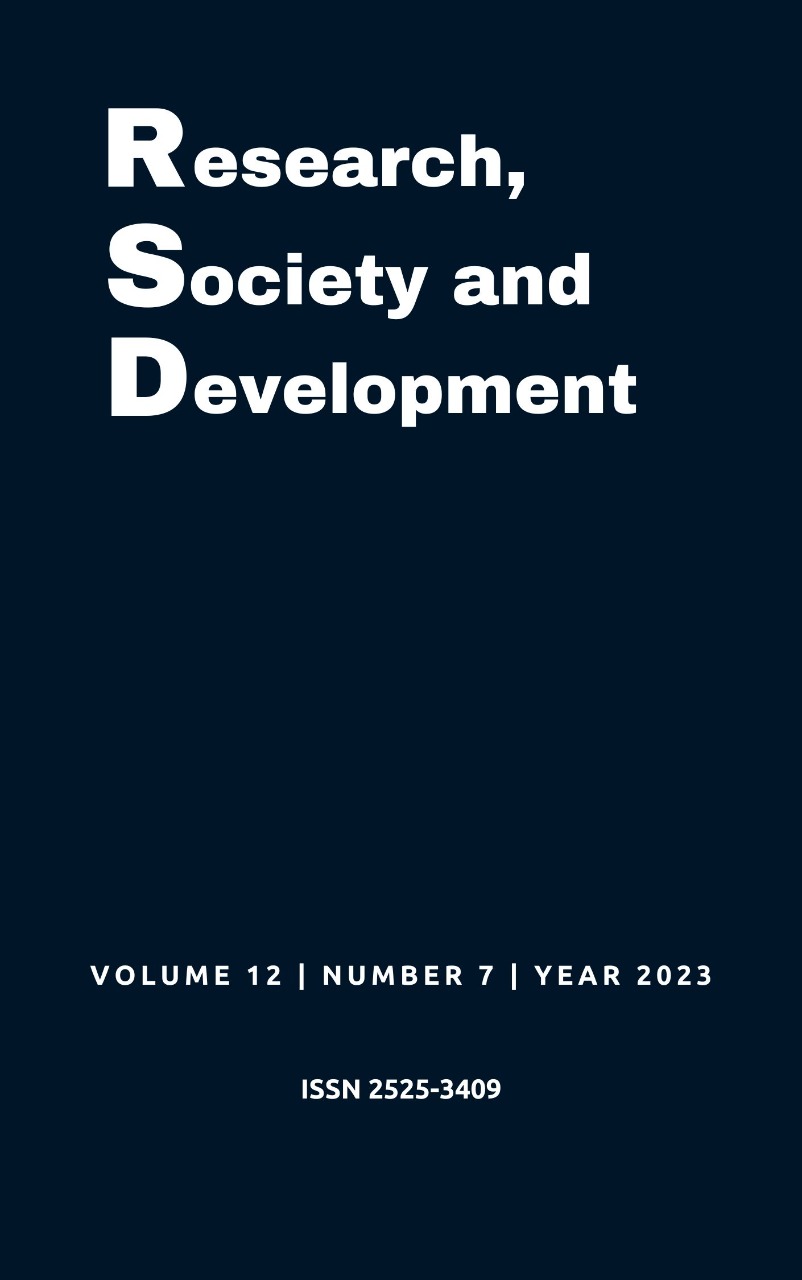Calculated questions in Moodle: do they prevent cheating?
DOI:
https://doi.org/10.33448/rsd-v12i7.42404Keywords:
Teaching, Formative assessment, Problem-based learning, Exams taken at home, Exams’ credibility.Abstract
During the Emergency Remote Teaching, all in-person assessments were suspended, causing great discomfort and raising questions about the authenticity of the answers given in remotely administered exams without the presence of supervision to ensure that students did not copy answers from their peers (cheating). One of the options explored to minimize the risk of cheating was to develop quizzes with different numerical answers for each student, using the Calculated Questions feature provided in the Moodle virtual learning environment. How can we determine if this strategy was effective? To what extent can we trust that the requirement for a different numerical answer for each student will increase the likelihood that the correct answer was actually calculated by the respondent? In this article, 12 academic semesters (from 2016 to 2021) taught in Engineering courses were analyzed, using asynchronous weekly quizzes composed of Moodle Calculated Questions. By using the "time to respond" information, typical distribution curves were obtained, considering the first time the questions were presented. It was observed that, over time, the average response times and standard deviations decrease, indicating that students are obtaining the answers without applying the time that would be necessary for complex calculations required to obtain the answer. The objective of this study is to present a methodology capable of collecting indicators on the effectiveness of using "Calculated Questions" to prevent cheating, based on standard Moodle reports.
References
Belhot, R. V. (2010). Taxonomia de Bloom : revisão teórica e apresentação das adequações do instrumento para definição de objetivos instrucionais. 421–431.
Bloom, B. S., & Krathwohl, D. R. (1956). Taxonomy of educational objectives : the classification of educational goals. Handbook I, cognitive domain. Longmans.
Canto, A. B. do, Ferreira, L., & Bercht, M. (2012). Objetos de aprendizagem no apoio à aprendizagem de engenharia: explorando a motivação extrínseca. RENOTE- Revista Novas Tecnologias Na Educação, 10(3). http://www.seer.ufrgs.br/renote/article/view/36390/0
Canto Filho, A. B. do. (2022). Fábrica de questões: conceitos e métodos para o desenvolvimento de bancos de questões calculadas. https://www.lume.ufrgs.br/handle/10183/243101
da Fonseca, M. A. R., Lima, D. da C. B. P., & de Oliveira Machado, E. C. (n.d.). REFERENCIAIS DE QUALIDADE PARA EaD: TRAJETÓRIA E INFLEXÕES NA EDUCAÇÃO SUPERIOR. Retrieved July 30, 2022, from https://www.seminariosregionaisanpae.net.br/numero7/Comunicacao/EIXO2PDF/23MariaAparecidaRodriguesDaFonsecaEDanielaDaCostaBrittoPereiralimaEElkaCandidaDeOliveiraMachadoE2.pdf
da Silva, I. V., & Afonso, A. F. (2021). Avaliação da aprendizagem em química: debates necessários no contexto de (pós) pandemia. Research, Society and Development, 10(9), e45310918111–e45310918111.
de Souza, J. A., & Innocenti, M. S. (2022). Avaliação da aprendizagem escolar em matemática no contexto remoto: reflexões a partir de dizeres docentes. Revista Meta: Avaliação, 14(43), 292–315. https://revistas.cesgranrio.org.br/index.php/metaavaliacao/article/view/3669/pdf
do Canto Filho, A. B. (n.d.). Desenvolvimento Sistemático de Questões Calculadas. https://doi.org/10.13140/RG.2.2.32236.39044
Gagné, M., & Deci, E. L. (2005). Self-determination theory and work motivation. Journal of Organizational Behavior, 26(4), 331–362. http://onlinelibrary.wiley.com/doi/10.1002/job.322/full
Herrera, M. M., & Angeletti, V. C. G. (2021). Evaluar en el contexto pandémico: hacia la evaluación con-formativa. Revista Iberoamericana de Tecnología En Educación y Educación En Tecnología, 28, e54–e54. https://teyet-revista.info.unlp.edu.ar/TEyET/article/view/1549
Krathwohl, D. R. (2002). A revision of Bloom’s taxonomy: An overview. Theory into Practice, 41(4), 212–218.
mac Gaul, M. I., Vargas, C. A., & del Olmo, P. (2021). Autogestión de la evaluación virtual en el campo de la Programación. Revista Iberoamericana de Tecnología En Educación y Educación En Tecnología, 28, e13–e13.
Molon, J., Nicolao, M., & Franco, S. R. K. (2020). Ferramentas digitais para a avaliação do processo de aprendizagem: um mapeamento sistemático da literatura. RENOTE, 18(2), 501–510. https://www.seer.ufrgs.br/renote/article/download/110290/60045
Moodle. (2022a). Moode - Calculated question type. https://docs.moodle.org/400/en/Calculated_question_type
Moodle. (2022b). Moodle Calculated Question Synchronization. https://docs.moodle.org/400/en/Calculated_question_type#Synchronization
Moodle Ramdom Question. (2022). Moodle. https://docs.moodle.org/311/en/Random_question_type
Nigam, A., Pasricha, R., Singh, T., & Churi, P. (2021). A systematic review on AI-based proctoring systems: Past, present and future. Education and Information Technologies, 26(5), 6421–6445. https://link.springer.com/article/10.1007/s10639-021-10597-x
Pacheco, J. N., da Rosa, C. T. W., & Darroz, L. M. (2022). Motivação intrínseca, extrínseca e autoeficácia em relação à ciência e às aulas de ciências: estudo envolvendo os anos finais do Ensino Fundamental. Research, Society and Development, 11(5), e31111528380–e31111528380. https://rsdjournal.org/index.php/rsd/article/download/28380/24598
Pereira, A. S., Shitsuka, D. M., Parreira, F. J., & Shitsuka, R. (2018). Metodologia da pesquisa científica.
Presidência da República. (2017, May 25). DECRETO No 9.057, DE 25 DE MAIO DE 2017; diretrizes e bases da educação nacional.
Tuchtenhagen, P. ia, Tuchtenhagen, P. H., Heuert, S. K., dos Santos Dullius, A. I., Priesnitz, M. C., Ansuj, A., Dullius, R. L., & Delboni, M. C. C. (2022). Abordagens de ensino e o processo avaliativo de alunos e professores. Research, Society and Development, 11(12), e347111234433–e347111234433.
Vansteenkiste, M., Lens, W., & Deci, E. L. (2006). Intrinsic Versus Extrinsic Goal Contents in Self-Determination Theory: Another Look at the Quality of Academic Motivation. Educational Psychologist, 41(1), 19–31. https://doi.org/10.1207/s15326985ep4101_4
Downloads
Published
Issue
Section
License
Copyright (c) 2023 Alberto Bastos do Canto Filho

This work is licensed under a Creative Commons Attribution 4.0 International License.
Authors who publish with this journal agree to the following terms:
1) Authors retain copyright and grant the journal right of first publication with the work simultaneously licensed under a Creative Commons Attribution License that allows others to share the work with an acknowledgement of the work's authorship and initial publication in this journal.
2) Authors are able to enter into separate, additional contractual arrangements for the non-exclusive distribution of the journal's published version of the work (e.g., post it to an institutional repository or publish it in a book), with an acknowledgement of its initial publication in this journal.
3) Authors are permitted and encouraged to post their work online (e.g., in institutional repositories or on their website) prior to and during the submission process, as it can lead to productive exchanges, as well as earlier and greater citation of published work.


